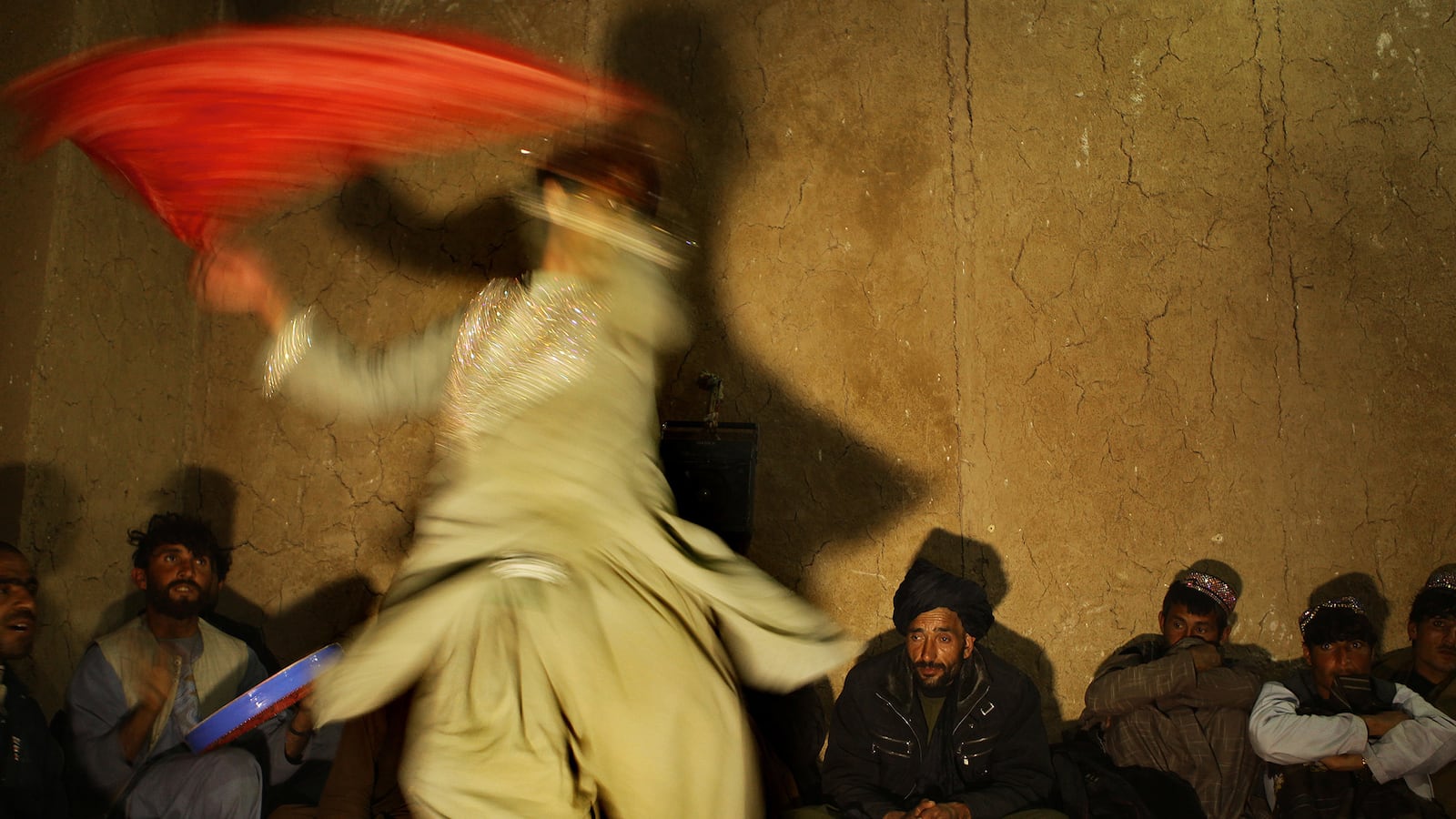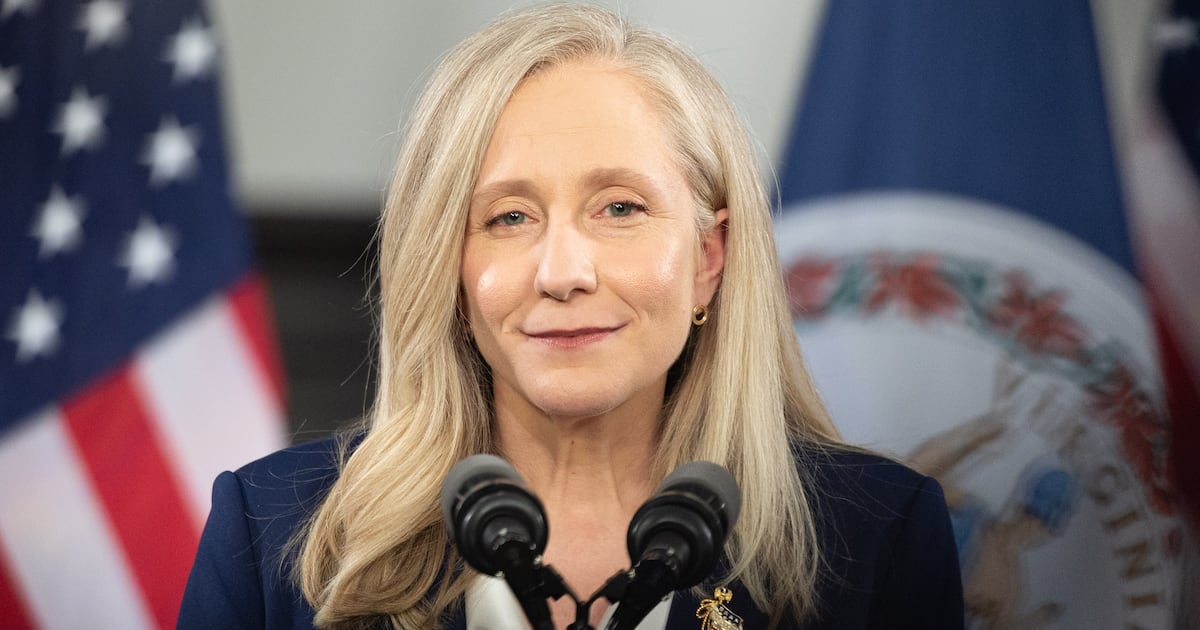U.S. Marines preparing to go overseas are given a detailed training session about the Marine Corps’ own rules against sexual assault. But they are offered practically no guidance on what to do if they witness rape and other sexual abuses by “local nationals” in other countries, including Afghanistan, where child rape is common.
A 45-minute scripted presentation given to Marines as part of their pre-deployment process doesn't say that they shouldn’t report sexual assaults in the countries where they’re serving. But it explains that laws and norms about sexual relations vary from country to country, and that in Afghanistan in particular, sexual assault is a “cultural” issue, and not a purely legal one.
The Daily Beast obtained a copy of the script for the training session, which includes a set of PowerPoint slides and instructions about what those leading the session are supposed to say on sexual abuse in other countries.
The training guide supports allegations by Marines and Army soldiers in recent days that they’ve been told not to intervene to prevent sexual assault in Afghanistan, including the rape and sexual enslavement of children on U.S. bases. Senior military officials, including the general in charge of U.S. forces in Afghanistan, have been forced to respond to what critics say is a policy of remaining silent in the face of crimes committed by Afghan officials trained and supported by the U.S., crimes that would send American service members to prison.
The result is many troops find themselves stuck in a policy defined by its ambiguity, even now, 14 years into the U.S. war there. Indeed, it is nearly impossible to find a service member who has served in Afghanistan who has not witnessed or heard of such abuse—and struggled to know how to respond.
Sexual abuse of young children isn’t prosecuted like sexual assault under U.S. military law, a fact that the training session notes in considerable detail.
In Afghanistan, “victims can go to jail for adultery, homosexuality, and other crimes—even though they were the victim of sexual assault,” the script for the training course says. The same holds true in Iraq and Saudi Arabia, the script notes.
But on the question of how sexual abuse is dealt with overseas, the Marines punt to authorities outside the U.S. military.
Instructors are told, “If there are questions about the prevalence of sexual assault in the country, inform the participants that you are not an expert on that country. … Recommend that the participant conduct research by starting with United Nations resources that are available online.”
Marines are told that if they have “any general questions about cultural or religious beliefs” surrounding sexual relations, they should speak to another instructor in charge of their “cultural pre-deployment brief.” The guide makes no references to what that cultural brief says.
A Marine Corps spokesman, asked for comment, referred to remarks by Army Gen. John Campbell, the commander of U.S. forces in Afghanistan, who said this week, “I want to make absolutely clear that any sexual abuse or similar mistreatment of others, no matter the alleged perpetrator or victim, is completely unacceptable, and reprehensible.”
The New York Times first reported on the military’s sexual assault policy in Afghanistan and on cases of U.S. service members who say they were retaliated against after standing up to Afghan child rapists.
“There isn't an explicit, top-level policy that requires soldiers to look the other way, but the fact that there have been such extraordinary implications for a group of service members that attempted to stop sex abuse says it all,” Rep. Duncan Hunter, a member of the House Armed Services Committee and a former Marine who served in Iraq and Afghanistan, told The Daily Beast. “Someone with half a brain can look at the circumstances of these cases and make the proper determination that the service member had good reason to step in and do something.”
Hunter has been pressing fellow lawmakers as well as Pentagon officials to review the cases of Army Sgt. Charles Martland and Cpt. Dan Quinn, Green Berets who faced disciplinary action after they picked up and threw an Afghan militia commander who had chained a boy to a bed and repeatedly raped him. Quinn was relieved of his command and left the Army. Martland is fighting the Army’s efforts to forcibly retire him.
Military leaders have rejected accusations that as a matter of policy service members are told to ignore sexual assault in Afghanistan, where a tradition called “bacha bazi” presses young boys into sexual slavery at the hands of grown men.
“I personally have served multiple tours of duty in Afghanistan and am absolutely confident that no such theater policy has ever existed here, and certainly, no such policy has existed throughout my tenure as commander,” Campbell said in a statement Tuesday.
Campbell also said that those who witness a sexual assault should report it through their chain of command. But there are limits to what the U.S. can do with such reports. As Pentagon spokesman Peter Cook explained to reporters Tuesday, “If the abuse involves Afghans, a report shall be forwarded to Gen. Campbell through operations channels, [and] copied to the staff judge advocate so that the government of the Islamic Republic of Afghanistan can be advised and requested to take action.”
But the Marine Corps training manual shows how the question of what constitutes rape in other countries can fall into a gray area for which U.S. military law on sexual assault offers few answers.
“Although sexual assault is against the law in almost all countries, the laws are not always enforced to protect the victims,” the training script says. “In fact, in some countries, shame and stigma are often attached to the victim and not the offender. Victims also risk blame and punishment for the crime that was committed against them.”
In Afghanistan, female victims may also be forced to marry their assaulters so that both can avoid going to jail, a practice that “protects the offender while subjecting a victim to marry and live with his or her offender,” the script notes.
The training course is mostly focused on ensuring that Marines understand how sexual assault is defined within their service, and what they should do if they witness it or become victims.
“As the Marine Corps, we can do our best to prevent our own Marines from sexually assaulting not only other Marines, but local nationals,” the script states. Marines are encouraged to “observe cultural and religious briefs” when interacting with locals, and to “observe general relations” and “avoid fraternizing with local nationals of the opposite gender, especially if frowned upon.”
“It is our responsibility as the Marine Corps and as a society to send strong, clear messages that we do not tolerate sexual assault,” the training guide states toward the end of the session. But then, Marines are told, “We have the responsibility to take care of one another” and to “intervene” if they witness an “unsafe” situation that could result in a sexual assault against another Marine. Again, no instructions on what to do if they witness assaults by locals on locals, even if the victims are children.
It’s not clear when the training script was prepared. But it cites statistics on sexual assault in the Marine Corps from 2011 and 2012. That coincides with a period in which some service members say the military’s policy of not treating sexual assaults by Afghans as a crime, and not trying to stop them, caused friction between U.S. forces and the civilians they were supposed to be protecting.
In 2012, an Afghan boy who is believed to have been the forced sexual companion to an Afghan police commander, living on a U.S. base, killed three Marines there, in what some have suggested was an act of retribution against U.S. forces whom the boy may have seen as complicit in his abuse.
Marine Maj. Jason Brezler, who was then attending graduate school, knew the police commander, a man named Sarwar Jan, who had been arrested two years earlier following accusations by other Marines of helping to facilitate Taliban attacks against U.S. forces. Jan was also accused of running drugs and weapons and of child sex abuse.
Brezler sent an email warning his fellow Marines at Forward Operating Base Delhi in Afghanistan about Jan, who had shown up with a retinue of young sexual companions. After one of them killed the three Marines, Brezler was accused of improperly sharing classified information about Jan in his email. Now the Marines are trying to forcibly discharge him.
“Brezler took action and spoke the truth to try to protect his fellow Marines and innocent Afghan children,” Kevin Carroll, Brezler’s pro-bono attorney and an Army veteran, told The Daily Beast. Brezler has faced the same kind of retribution as Quinn and Martland, who were also punished for confronting child sex abuse, Carroll said.
Carroll objected to Gen. Campbell’s statement that there was no policy dictating that U.S. forces not report sex abuse.
“The real questions is, what is the practice?” he said.
Jan is reportedly still in a high-ranking position in the Afghan police force. Why remains a mystery.
The Naval Criminal Investigative Service interviewed Jan in 2014, in connection with the killing of the three Marines, but the interview has been marked “secret,” said Carroll, who has obtained some of a 400-plus page homicide file. That file, though, is heavily redacted.
The Marine Corps also claims to have “lost” the recording of a nine-hour interrogation of the shooter, Carroll said. And according to the NCIS file, one Afghan witness to the shooting was threatened about speaking to authorities. His brother was also allegedly kidnapped and his fingernails were removed to intimidate him into not talking.
Carroll said that one boy would be incapable of kidnapping and intimidating witnesses, and that the Taliban has likely intervened to protect Jan.
“General Campbell’s priority should not be shooting the messengers,” Carroll said of his client and others who spoke out against child sex abuse. “His priority should be ensuring that Sarwar Jan does not morally and physically endanger American service members or Afghan children we’re trying to protect.”
—With additional reporting by Nancy A. Youssef






